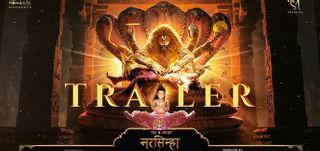
Article 15 Movie Review
Article 15 of the Indian Constitution says that there shall be no discrimination on the basis of religion, caste, sex or place of birth. But when you're deep in the heartland called 'Lalgaon', then perhaps the concept of equality has not reached the people. This reality of an India that is on the brink of change is the subject of this tense cop thriller.
Ayushman Khurana chooses unusual movies and this perhaps is a wise choice. He plays Ayan Ranjan, an IPS officer who comes from a wealthy background. He has traveled the world over, but he's posted in a village where civil behaviour is but a pipe dream and the local police like Manoj Pahwa are fed up when he has to hold the people's sentiments and the officers ideas on law.
This film is all about how he manages to bring the rule of law to a land that lives by none. When Ayan lands up in Lalgaon, only to face the disappearance of three girls. He's raring to go, but he's told, 'They'll be back.'
Of course they don't. As an audience who has seen so many Indian cop films that they have become a trope, you know Ayan is going to get slapped by power and corruption he's not really equipped to handle with a rule book in his hand. We don't care. Anubhav Sinha has the knack to keep you riveted to the screen even when you don't want to look at the bodies of two of the missing girls hanging from a tree.
The lynching, the apathy, the sheer callousness that the ancient caste system can instil in people makes for the next part of the film. It's frustrating and hopeful at the same time. All because Ayushman Khurana lends a sense of purpose and righteous anger to the role. Mohammad Zeeshan Ayub and Sayani Gupta make the case for the oppressed but is it enough?
Kumud Mishra plays a policeman who belongs to a lower caste, but is his voice enough? Is there a nexus between politicians and the police that is still suppressing the poor? The image of torchlights in a swamp will haunt you if you do begin to think of these issues as a citizen.
All these questions have been tackled many times in Indian cinema, but this film becomes important because the world is becoming more and more intolerant and people in power seem to break the law at will.
The grey, gritty mood of this film will keep you so engaged, you will not be able to eat popcorn. But the director balances humor and issue discussions well and this is where the film scores. I wouldn't mind a sequel at all, despite the predictability of the theme.



















